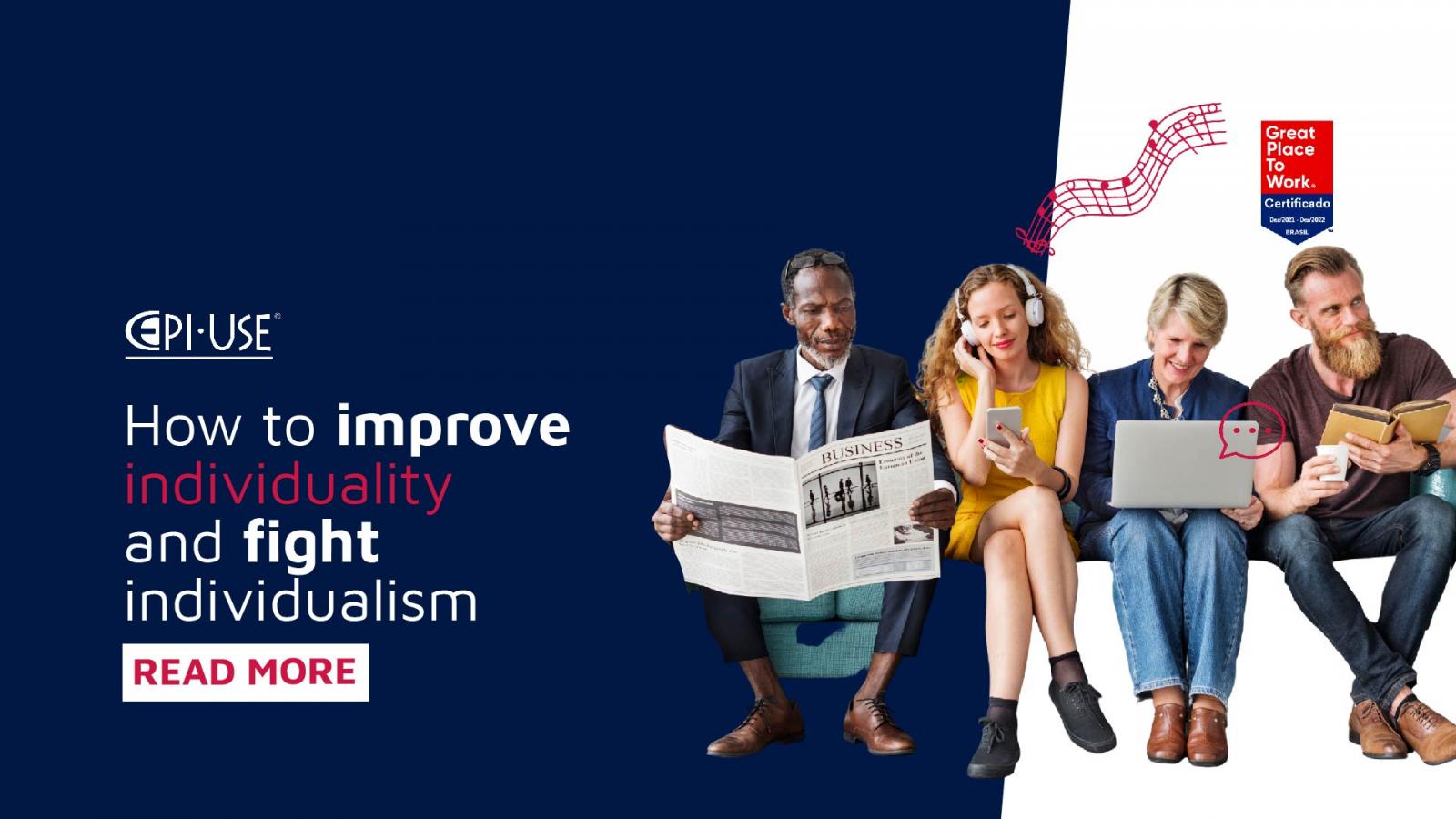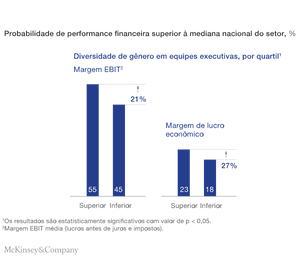Learn how to work individuality in the organization to increase productivity and retain talent
Publicado em 29/03/2022 18h30
7 minutos para leitura

Although individuality and individualism seem to have the same meaning, they have different meanings. Next, we will detail each behavior and explain why companies have increasingly sought to bring out individuality as a way to improve mental health, retain talent, and increase the productivity of their employees.
According to research by McKinsey and Company, companies that promote diversity are likely to have above-average profitability.

Individuality is what differentiates one individual from another. It is formed by your personality, characteristics, and skills that are acquired throughout life through family teachings, social experiences, and everyday life. Individuality is a reference that companies seek to work positively within teams to shape the individual to influence and work productively.
Individualism, on the other hand, is a selfish personality characteristic, where the individual puts himself first, rejecting opinions, suggestions and ceasing to care about the thoughts and actions of the people who live with him. Individualism limits the coexistence of the collective, isolating the individual from the team, is seen negatively in companies, and leading the professional to be disconnected.
A few years ago, in a not-so-distant corporate world, we were shaped to fit the culture of the company we were in. Whether for money, career, status, or for “N” reasons, we live a very different professional life from our personal life, at times, separating our identity in these moments.
Time has passed, generations have changed and also the way companies relate to their employees. Today, it is increasingly common to see talent seeking purpose and identification with the brand, rather than high salaries and a solid career. The world has changed and with it new customs, tastes, and ways of living, inside and outside work.
Diversity and inclusion are recurring themes on the agendas of large companies, along with them come new policies, new rules and new ways of relating within organizations, a new corporate etiquette. But, is the way of dealing with these companies based on the individuality of each employee?
We have seen more and more in the companies we serve, the search for productivity, flexibility, a balance between personal and professional life, etc., all this to keep talents within organizations. Therefore, working with different individuals generates a breadth of business vision, increases productivity, improves problem-solving, and promotes more innovation. Letting people be who they are stimulating their and companies' growth, causing a sense of belonging within the corporate environment, making it healthier.
Take care of your business and take the first step to improve the productivity and retention of your talents. A reactive company waits for the event to start carrying out, an example was the pandemic forcing digital transformation. It is a fact that modernizing business and keeping up to date in the market is essential to remain competitive. The same goes for your employees, if you don't take care, know what they want, and apply it with technique, you will lose your best talents.
It's challenging to align different opinions and goals, so we've put together some practices for you to work on individuality in your company:
Did you know that according to the WHO (World Health Organization) about 12 million Brazilians suffer from depression, this is the highest rate in Latin America. With the growing rate of depression and work-related syndromes, employees seek to work in companies that practice well-being. But how do you promote well-being in the workplace?
Diversity and inclusion go beyond racial quotas and physical disabilities, it is knowing how to work the individuality of individuals within the team. Structuring processes, defining objectives, and setting goals is essential to promote diversity and inclusion, so we have gathered 3 steps to help you in the transformation process:
Money is no longer the biggest motivator for employees to work at a particular company. People seek space in the workplace and seek to be who they are. The new generations aim to work in companies that seek purposes beyond the corporate world, such as:
Imagine having a team with people who have different skills, thoughts, and personalities. The organization must develop and train leaders so that the leader can lead approaches to different profiles of employees. Okay, it's not easy. For that, we separate some leadership training tips:
Knowing how to analyze the individuality of each employee is very important for the success of the team. The manager's challenge is to identify and work on the skills of employees in a personalized way. For example, an analytical person will not do well with creative projects or a less communicative person will not enjoy presenting a large-scale project to the board. But how do identify the individuality of the collaborator?
Continuous feedback is a powerful tool for evaluating the leader and the team member, in addition to being a more open conversation about the actions of both, it is a way to point out the skills and opportunities of the employee's individuality and keep them aligned with the expectations of the company and the individual. And how to make continuous feedback?
Gone are the days when plastered teaching methodologies were considered the best ways of learning, today we can choose how and in what way to learn. Technology gives us countless tools and freedom to simply and effectively learn anything.
With that in mind, we brought up the term “Keep it simple, Stupid?” as a reflection. which is a principle
in the execution of projects, activities or tasks to be executed more simply. See how:
As Dale Carnegie would say in the book “How to Win Friends and Influence People”: “Personally, I like strawberries with whipped cream, but I found that, for some reason, fish prefer worms. So when I go fishing, I don't think about what I like, I think about what the fish is like. I don't put a strawberry and whipped cream on my hook. What I do is put a worm, or a grasshopper in front of the fish and say: ``You like that don't you?”.
Like the fisherman who offered the fish what they liked, is your company offering what each employee would like? This is a way of working on individuality within teams, each employee has a different personality and characteristics and they must be addressed in personalized ways, meeting the needs of each team member.
Teamwork is increasingly valued and encouraged within organizations, in addition to providing a healthy and motivating environment, it is essential for employee satisfaction and well-being. Even knowing the importance of collaborative work, many professionals act without thinking about the collective, check out some tips to promote teamwork:
Now that you know the difference between individualism and individuality, boost your company with flexible and innovative management, providing a collaborative corporate environment.
For more content from the HR world, visit our blog.
E fique por dentro de todas as novidades da EPI-USE Brasil.
Legal!
Você assinou a nossa Newsletter!
A partir de agora você receberá nossas novidades diretamente no seu e-mail!
Para isso, é importante que você adicione o e-mail marketing@epiuse.com.br na lista de remetentes confiáveis,
para evitar que nossas mensagens fiquem presas na caixa de spam!
Um abraço,
Equipe EPI-USE Brasil
Opps!
Um erro ocorreu!
Sentimos muito por isso! Tente novamente mais tarde!
Um abraço,
Equipe EPI-USE Brasil